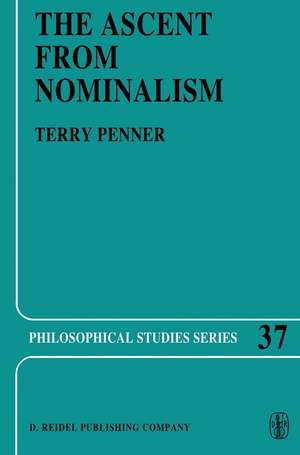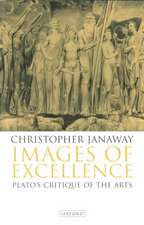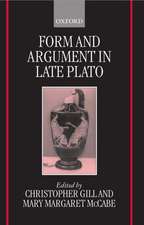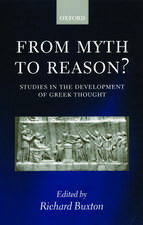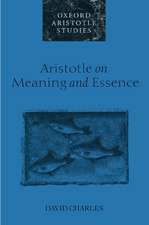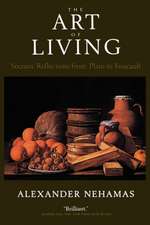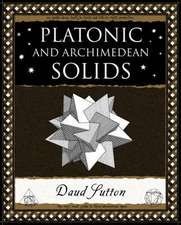The Ascent from Nominalism: Some Existence Arguments in Plato’s Middle Dialogues: Philosophical Studies Series, cartea 37
Autor Terry Penneren Limba Engleză Hardback – 28 feb 1987
| Toate formatele și edițiile | Preț | Express |
|---|---|---|
| Paperback (1) | 1225.62 lei 6-8 săpt. | |
| SPRINGER NETHERLANDS – 2 oct 2011 | 1225.62 lei 6-8 săpt. | |
| Hardback (1) | 1231.78 lei 6-8 săpt. | |
| SPRINGER NETHERLANDS – 28 feb 1987 | 1231.78 lei 6-8 săpt. |
Din seria Philosophical Studies Series
-
 Preț: 407.78 lei
Preț: 407.78 lei - 15%
 Preț: 644.95 lei
Preț: 644.95 lei - 18%
 Preț: 1120.18 lei
Preț: 1120.18 lei - 18%
 Preț: 1005.43 lei
Preț: 1005.43 lei - 15%
 Preț: 640.06 lei
Preț: 640.06 lei -
 Preț: 381.21 lei
Preț: 381.21 lei -
 Preț: 391.61 lei
Preț: 391.61 lei - 15%
 Preț: 640.88 lei
Preț: 640.88 lei - 15%
 Preț: 639.25 lei
Preț: 639.25 lei - 18%
 Preț: 1221.51 lei
Preț: 1221.51 lei - 18%
 Preț: 947.18 lei
Preț: 947.18 lei - 18%
 Preț: 955.56 lei
Preț: 955.56 lei - 18%
 Preț: 950.96 lei
Preț: 950.96 lei - 15%
 Preț: 645.47 lei
Preț: 645.47 lei - 15%
 Preț: 641.38 lei
Preț: 641.38 lei - 15%
 Preț: 644.82 lei
Preț: 644.82 lei - 18%
 Preț: 950.66 lei
Preț: 950.66 lei -
 Preț: 386.00 lei
Preț: 386.00 lei - 15%
 Preț: 644.82 lei
Preț: 644.82 lei - 15%
 Preț: 642.18 lei
Preț: 642.18 lei - 15%
 Preț: 643.48 lei
Preț: 643.48 lei - 18%
 Preț: 944.99 lei
Preț: 944.99 lei - 15%
 Preț: 638.76 lei
Preț: 638.76 lei - 20%
 Preț: 553.25 lei
Preț: 553.25 lei - 20%
 Preț: 560.30 lei
Preț: 560.30 lei - 18%
 Preț: 951.29 lei
Preț: 951.29 lei - 18%
 Preț: 893.40 lei
Preț: 893.40 lei - 20%
 Preț: 566.75 lei
Preț: 566.75 lei - 18%
 Preț: 951.77 lei
Preț: 951.77 lei
Preț: 1231.78 lei
Preț vechi: 1502.17 lei
-18% Nou
Puncte Express: 1848
Preț estimativ în valută:
235.73€ • 243.52$ • 196.19£
235.73€ • 243.52$ • 196.19£
Carte tipărită la comandă
Livrare economică 26 martie-09 aprilie
Preluare comenzi: 021 569.72.76
Specificații
ISBN-13: 9789027724274
ISBN-10: 902772427X
Pagini: 480
Ilustrații: XXVIII, 452 p.
Dimensiuni: 210 x 297 x 31 mm
Greutate: 0.85 kg
Ediția:1987
Editura: SPRINGER NETHERLANDS
Colecția Springer
Seria Philosophical Studies Series
Locul publicării:Dordrecht, Netherlands
ISBN-10: 902772427X
Pagini: 480
Ilustrații: XXVIII, 452 p.
Dimensiuni: 210 x 297 x 31 mm
Greutate: 0.85 kg
Ediția:1987
Editura: SPRINGER NETHERLANDS
Colecția Springer
Seria Philosophical Studies Series
Locul publicării:Dordrecht, Netherlands
Public țintă
ResearchCuprins
Analytical Table of Contents.- 1. Some Views of the Forms; a Prolegomenon for Analytical Philosophers.- 2. A General Strategy for the Present Volume.- 3. Nominalism What.- 4. Incorrigible Conceptual States What.- 5. The Frege-Quine Objections.- 6. Plato’s other main Middle Period Argument for the Existence of Forms—the Argument from the Sciences.- 7. On giving Plato a Position he ‘could have had in mind’.- The Nominalist.- 1. The Recollection argument of the Phaeao, commonly thought to presuppose the existence of the Forms, actually provides an argument (against nominalist opponents) for their existence.- 2. The opponents in the Republic (the ‘lovers of sights and sounds’) and in the Parmenides (Zeno, at least if his arguments against plurality are to be conclusive) also represented as nominalists.- 3. Various difficulties for the existence argument of the Phaedo.- 4. The basic idea of the argument: that the equal we perceive we can confuse with the unequal we perceive; but the equal we conceive is, in clear cases, unconfusable with the unequal we conceive.- 5. Incorrigible conceptual states and Moore’s argument against the ‘Naturalistic Fallacy’.- 6. Forms of opposites as the opposites (themselves). How to understand the locution ‘the F-itself’.- 7. The quasi-theological predicates of the Forms. The Forms and Universal Literal Self-Predication.- 8. Peculiarities of the contrast in Republic V between Knowledge and Opinion. The notion that the objects of opinion “lie between being and not-being”.- 9. Confusing the questions ‘What is F-ness?’ and ‘What things are F?’ Deficiencies of sensible F’s as (nominalist) answers to the question ‘What is F-ness?’ The notion that Forms are “separate”.- 10. Doesn’t the description of theForm of the Beautiful in the Upward Path in Symposium 210–212 compel the self-predicative notion that sensible particular F things are always less F than the F-itself?.- 11. Examination of Symposium 210–212 shows the latter suggestion to be a consequence of confusing the questions ‘What is beauty?’ and ‘What things are beautiful?’.- 12. Plato’s argument being an anti-nominalist argument from certain sorts of psychological states to objects of those states, we must turn to look at the (from a Fregean point of view) suspicious notion of objects of thought.- Aristotle’s Dilemma.- 1. The Platonic ‘something or nothing?’ question, objects of thought, and ‘existential generalization from within psychological contexts’.- 2. ‘Intensional’ objects, ‘extensional’ objects and the inference from the existence of thoughts of Santa Claus to the existence of Santa Claus himself. Difference between a thought being directed and there being something the thought is directed towards.- 3. Intensional/extensional and the taking of equal sticks to be unequal sticks or of the Morning Star to be other than the Evening Star. ‘Substituting for identicals within psychological states’.- 4. Platonic worries about ‘logically parallel’ arguments. The suggestion in Aristotle’s discussion of the ‘Argument from Thinking’ that he is aware of the dangers of inferences in psychological contexts involving existence and identity; and a difficulty for this view—Aristotle’s endorsing of the Argument from the Sciences. (Aristotle’s Dilemma).- 5. The plausible (though in fact incorrect) suggestion that we are unable, in clear cases, to confuse equality with inequality compared with the suggestion that there are such things as intuitions of contradictoriness.-6. The idea of a science of logic that is neutral on matters of fact and real existence. Logical Form and the Platonic Forms.- 7. How Frege violates his own inferential restrictions—in Arguments from the Sciences—and even in his own theory of psychological contexts.- Clarifications.- I. The Recollection Argument at Phaedo 72A–77A.- II. Are Forms of Opposites just Opposites? Plato’s Final Argument for the Immortality of the Soul at Phaedo 102A–107A.- III. Between Being and Non-being: Why is the Object of Knowledge Being while the Object of Opinion is “What lies between Being and Not-being”?.- IV. Other Middle Period Passages with the Formula ‘The F Itself which are to be read with Caution.- V. Aristotle’s Lost Work On the Ideas.- VI. Formulating the Third Man Argument.- VII. Aristotle on whether ‘The Universal man is [a] man’ is true in the same sense as ‘Socrates is [a] man’ is true.p.- VIII. Plato and the Philosophers of Language.- Notes.- to Introduction.- to ‘The Nominalist’.- to ‘Aristotle’s Dilemma’.- to Clarification Two.- to Clarification Three.- to Clarification Four.- to Clarification Five.- to Clarification Six.- to Clarification Seven.- to Clarification Eight.- Index of Passages Cited.- Index of Persons and Subjects.
